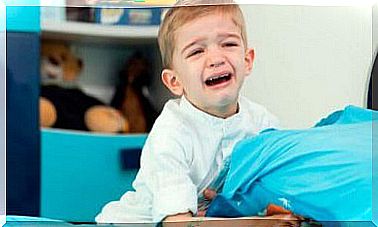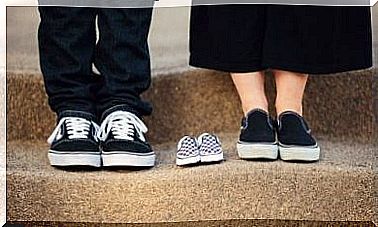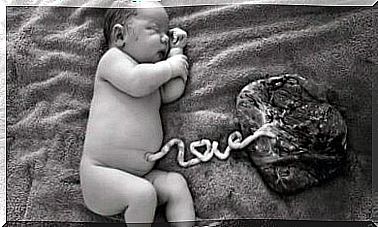When Should You Worry About Nail Biting In Children?
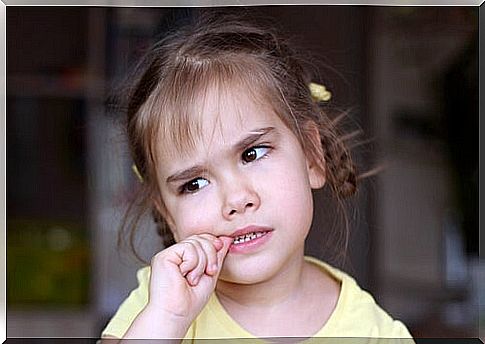
In this article, you will find out when you should start worrying about this bad habit and how you can behave.
In children, nail biting can be a very common phenomenon. Nonetheless, it is necessary to treat it in time to prevent this bad habit from accompanying the child into adulthood.
The nail biting is to bite her nails constantly, whatever the reason. If practiced regularly, it can cause health problems. In other words, the loss of control over this vice indicates something is not right.
When children bite their nails even before they have grown, we need to be careful and act accordingly. So, the first thing we need to understand is what may be the cause of onychophagy in children.
Causes of nail biting in children
- Stress.
- Anxiety.
- Boredom.
- Emotionally painful events, such as the death of a loved one, quarrels between parents or uncertainty about the arrival of a baby brother, among others.
Consequences
Onychophagy in children can cause various health problems, of greater or lesser extent. Below, we list which are the most common.
Dental problems
- Abnormal alignment of the teeth, caused by a possible deformation of the dental arch. The resulting consequence is a disordered birth of the permanent dentition or the misalignment of the existing one. To remedy the deformation it will be necessary to resort to orthodontics.
- Inflammation of the gums, caused by microorganisms present under the nails. These agents can cause inflammatory diseases such as, for example, gingivitis or periodontitis.
- Onychophagy can cause pain when chewing food, due to an intensive effort on the part of the jaw.
- Halitosis (bad breath), due to lack of hygiene or oral infections.
Digestive problems
- Depending on the intensity and duration of the habit, cases of intestinal obstruction can occur.
- Different types of opportunistic infections. That is to say, diseases caused by pathogens which, under normal conditions, would not constitute a danger to the organism. They are, however, in some situations: for example, when the immune system is compromised.
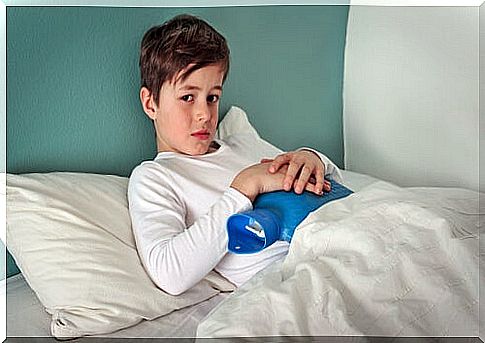
Dermatological problems
- Bacterial finger infection. Normally, it will arise below the epidermis, due to the filtration of saliva through the skin. The consequence is the inflammation of the fingers, which makes their use painful (and difficult).
- Depending on the severity of the situation, long-term nail biting in children can deform the fingers and nail growth, and even cause permanent nail loss.
- Ulcerative infections, which may persist even if the nails have been torn off and the area of the skin they occupied has been bitten or injured. This damage can cause easily flammable wounds, due to the large amount of germs present in the saliva.
- Another problem is, undoubtedly, that of an aesthetic nature. Onychophagy in children is unpleasant to the eye, with a consequent negative social impact.
What can you do?
In addition to the fact that biting nails can be considered unpleasant, swelling of the fingers, inflammation of the gums and bad breath can damage (although, on the surface, it may not seem like that) the child’s self-esteem.
For what reason? Because his appearance generates rejection or is a source of jokes from other children. As a result, it is possible for the child to isolate himself or, in extreme cases, develop social anxiety disorders.
Onychophagy in children is a problem that is not normally addressed through drug treatment. Given its compulsive nature, however, it is necessary to seek the help of a psychologist and start a positive therapy.
It is very important that we avoid judging children and instead consistently practice the advice given by a professional. If we stay firm over time, we will be able to make sure that this bad habit disappears.
Similarly, correcting onychophagy in children will prevent them growing up with problems one day and developing an addiction to tobacco, drugs or other substances.
We remember that all this is only an escape from the accumulated tension and the result of a bad management of emotions and thoughts.
Do not ignore your child and analyze your way of interacting with him. A seemingly harmless habit, such as biting your nails, can be a warning sign that you need more care and attention.



